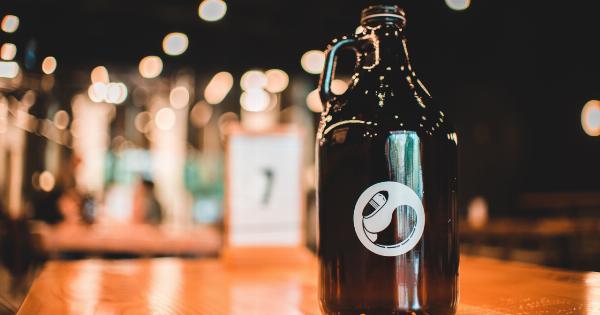Alcohol has long been a part of human society, consumed for various reasons such as social bonding, stress relief, and relaxation. However, the effects of alcohol on decision-making skills are often overlooked or underestimated.
In this article, we will explore the impact of alcohol on decision-making skills and discuss the potential consequences it can have on individuals and society at large.
The Effects of Alcohol on the Brain
Before delving into the effects of alcohol on decision-making, it is crucial to understand how alcohol affects the brain. Alcohol is a central nervous system depressant that slows down brain activity.
It primarily affects the frontal lobes, which are responsible for executive functions such as decision-making, reasoning, and impulse control.
When alcohol enters the bloodstream, it quickly reaches the brain, leading to altered brain chemistry. This alteration affects neurotransmitters, which are chemical messengers that transmit signals between brain cells.
Alcohol primarily affects the neurotransmitter called gamma-aminobutyric acid (GABA), which inhibits brain activity and causes sedation and relaxation. Simultaneously, alcohol suppresses the neurotransmitter glutamate, responsible for excitation, leading to a decrease in overall brain activity.
Furthermore, alcohol also affects the brain’s reward system by increasing the release of dopamine, a neurotransmitter associated with pleasure and reward. This leads to the euphoric effects commonly experienced when consuming alcohol.
Immediate Effects on Decision-Making Skills
When individuals consume alcohol, their decision-making skills can be impaired almost immediately. Alcohol reduces inhibitions, leading to more impulsive behavior and poor judgment.
This can result in individuals engaging in risky activities or making choices they would typically avoid when sober.
Studies have shown that alcohol’s effect on decision-making is dose-dependent, meaning that the more alcohol consumed, the greater the impairment. Blood alcohol concentration (BAC) levels directly influence decision-making abilities.
Even at low to moderate BAC levels, decision-making can be significantly impacted.
Alcohol impairs cognitive functions, including logical reasoning and problem-solving skills. It affects the brain’s ability to process information efficiently and make rational choices.
The altered state of mind caused by alcohol can also lead to the inability to consider long-term consequences, as short-term pleasure and immediate gratification become the focus.
Alcohol and Risky Behavior
The impaired decision-making caused by alcohol consumption can contribute to engaging in risky behavior.
Alcohol reduces individuals’ ability to assess risks accurately, leading to increased participation in dangerous activities such as drunk driving, unprotected sex, or experimentation with illicit substances.
Alcohol also affects perception and coordination, potentially resulting in impaired judgment of distance, speed, and reaction time. This puts individuals at a higher risk of accidents, injuries, and even fatalities.
Furthermore, alcohol’s impact on decision-making skills can lead to poor financial choices, impaired career prospects, and damaged personal relationships.
The inability to make sound decisions while under the influence of alcohol can have long-lasting consequences that extend far beyond the immediate impaired state.
Alcohol and Emotional Decision-Making
Besides impairing logical decision-making abilities, alcohol also affects emotional decision-making. Alcohol can amplify pre-existing emotions, making individuals more susceptible to impulsive emotional decisions.
This can lead to conflicts, aggression, and irrational choices driven by heightened emotions.
Alcohol reduces self-awareness and self-control, further exacerbating emotional decision-making. Individuals may engage in regrettable actions or say things they would not consider when sober.
The combination of impaired logic and heightened emotions can create a volatile situation that can have severe consequences both personally and socially.
The Long-Term Effects of Alcohol on Decision-Making Skills
Repeated and excessive alcohol consumption can have long-term effects on decision-making skills.
Chronic alcohol abuse can lead to structural and functional changes in the brain, including shrinkage of certain brain regions and damage to white matter, affecting decision-making abilities even when sober.
Prolonged alcohol abuse can also contribute to memory impairments and difficulties with information processing. Decision-making relies on the ability to recall past experiences and assess potential outcomes.
Alcohol-related memory deficits can hinder the decision-making process, leading to poor choices.
Additionally, alcohol addiction can hijack the brain’s reward system, making alcohol-seeking behavior the priority over other areas of life.
This obsession with alcohol can lead to destructive decision-making, neglecting responsibilities, and jeopardizing relationships or professional opportunities.
Preventing the Negative Effects of Alcohol on Decision-Making Skills
Recognizing the potential consequences of alcohol on decision-making skills is crucial. Individuals can take certain steps to minimize these effects:.
1. Moderation: Consuming alcohol in moderation can help mitigate the immediate and long-term effects on decision-making skills.
2. Know personal limits: Understanding personal tolerance levels and knowing when to stop drinking can prevent excessive impairment.
3. Plan ahead: Making decisions about safe transportation methods before consuming alcohol can reduce the risk of impaired judgment leading to dangerous situations like drunk driving.
4. Seek support: Individuals struggling with alcohol abuse should consider seeking professional help to address the underlying causes and develop healthier coping mechanisms.
5. Educate others: Spreading awareness about the effects of alcohol on decision-making skills can encourage responsible drinking and help reduce the negative consequences.
Conclusion
Alcohol significantly impairs decision-making skills by altering brain function and chemistry. Its immediate effects can result in impulsive and risky behavior, while long-term abuse can lead to chronic impairments and devastating consequences.
Recognizing the impact of alcohol on decision-making skills is essential for fostering responsible drinking habits and minimizing the potential harm it can cause both individuals and society at large.






























